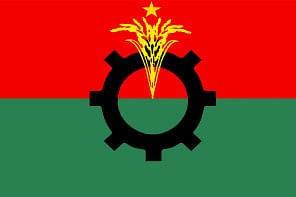Unjustified restrictions on media and observers

A number of extraordi-nary restrictions have been placed on journalists by the Election Commission ahead of Election Day and the extent to which the media can cover the election on December 30 remains unclear. Some of these implausible restrictions, as prescribed in the EC's guidelines, are allowing journalists to live telecast only from a "safe distance" from polling booths on the "condition that they will not create any trouble in casting vote" and barring local polls observers from talking to the media. Unsurprisingly, the absurd restriction on journalists travelling on motorbikes on voting day was withdrawn yesterday soon after a delegation of the AL requested the EC that it be removed.
So far, all that the EC has done is curtail access for the media on a crucial day such as Election Day. The actions it has taken thus far vis-à-vis the media go against the norm which is to create an enabling environment for the media to report freely. The EC should know that blocking the free flow of information on Election Day goes against the very ethos of an acceptable election which demands complete transparency and access for the media so that citizens can remain well-informed.
While the EC's problematic statements and actions make for a long list, let's focus on the fact that the EC Secretary instructed local observers not to talk to the media on voting day. Does this mean that these observers, who are supposed to be an independent entity, work and report to the EC? What does it then say about the freedom that polls observers are going to enjoy in the upcoming elections? Why is the EC dictating to them who they should or shouldn't talk to?
Not only are the EC's restrictions on the media and local observers in contradiction of long-established global standards, but they also give way to questions as to why the EC is so desperately overreaching. And what makes it all the more disconcerting is the fact that the EC has been coming up with one restriction after another without any credible justification whatsoever.
Whether the EC agrees or not, there are some commonly accepted principles and standards which it must abide by if we are to believe that the EC indeed is an "independent body" that can duly fulfil its responsibility of conducting the election in a free and fair manner. This requires the EC being aware of the boundaries of its authority, instead of dictating to the media and observers what it can and cannot do and defusing the channels of communication among those reporting and monitoring the election.
Perhaps the EC should take a quick look at the "Declaration of Principles for International Election Observation and Code of Conduct for International Election Observers," published by the United Nations, which clearly states that for international election observers to work effectively, one of the basic conditions that have to be met is "unimpeded access to all persons concerned with election processes, including news media personnel." This would obviously apply to local observers as well and entail verbal communication with the media. This is not to say that observers are free to disclose anything and everything to the media—there are specific guidelines regarding this as well. But in our case, what the EC has done is categorically disallow local observers from talking to the media; the cumbersome alternative it offered to them instead is to "arrange a press conference but only after submitting their reports to the commission," as declared by the EC Secretary himself. This begs the question: why should anything neutral observers have to say or comment on have to be approved by the EC? Is there such a precedent anywhere else in the world? In fact, according to the guidelines set forth by the UN, observers should "refrain from making any personal comments about their observations or conclusions to the news media or members of the public before the election observation mission makes a statement, unless specifically instructed otherwise by the observation mission's leadership." So, if anything, the final decision rests on the leadership of the mission, depending on the nature of the information being revealed to the media, and not the Election Commission of the host country.
All this is happening in the backdrop of a declining number of local observers. According to a report in Prothom Alo yesterday, 15 NGOs out of the 22 organisations forming the Election Working Group, despite having obtained permission from the EC, have not yet received a letter of no objection related to foreign funding from the NGO Bureau. This means that the number of observers will now be down by around 8,000.
So far it does not look like it will be smooth sailing for either local observers or journalists on Election Day. Furthermore, the EC's plan to reduce internet speed on voting day seems set in stone—for which we are yet to get a credible justification once again. According to a BTRC official, the telecom regulatory body "may" ask mobile operators to reduce internet speed to 2G in which case photos or videos cannot be uploaded on social media.
Journalists should prepare themselves for the insurmountable obstacles they are likely to face on Election Day. On top of the many restrictions, to make things worse, any hope of a violence-free election has been dashed and journalists are not off limits, as the recent horrific attack on reporters covering election news in Nawabganj clearly shows. The day following the attack on the guesthouse where journalists were staying, the EC Secretary feigned ignorance of the entire incident, remaining true to the EC's long-held attitude of indifference since election proceedings began. So it's not just the overall hostile environment that journalists should be scared of, i.e. physical intimidation by miscreants, but they should also be extremely worried about the complete lack of protection—both from the law enforcement and the EC—should a serious incident arise on D-Day.
Nahela Nowshin is a member of the editorial team at The Daily Star.

 For all latest news, follow The Daily Star's Google News channel.
For all latest news, follow The Daily Star's Google News channel. 



Comments